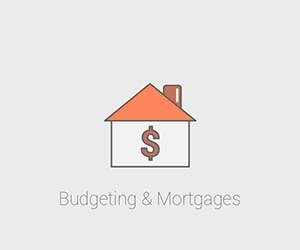 You’re going to hear the word “escrow” a lot when you’re buying a home, whether it’s someone referring to an “escrow account” or going “into escrow.”
You’re going to hear the word “escrow” a lot when you’re buying a home, whether it’s someone referring to an “escrow account” or going “into escrow.”
So, what is escrow?
Escrow is a general term for anything of value being held by a neutral third party for safekeeping until the conditions of a contract are met. This ensures that in the event that something goes wrong and the deal falls through, the valuables held in escrow are returned to their respective owners.
What are escrow accounts used for when I buy a home?
Two types of escrow accounts are associated with home buying:
- Closing Escrow
- Mortgage Impound Account
Closing Escrow
When you put in an offer, the escrow account is designed to protect the purchase. An escrow officer (usually a lawyer or representative from the title company) holds all of the closing documents and your earnest money deposit (more on earnest money in our Offer and Negotiation section) while you and the seller negotiate and close the transaction. Once the seller has accepted your offer, and you’ve both signed a purchase agreement, the sale is “in escrow” until you close. The escrow officer will ensure the closing goes smoothly, that the seller has the legal right to sell you the property, the title is properly transferred, and that everyone gets paid what they’re owed. They usually collect a 1 to 2 percent fee.
Mortgage Impound Escrow
A second escrow account, between you and your lender, serves a different purpose. The lender will hold some of your funds to pay taxes and insurance throughout the year. Your monthly payments will include deposits into your escrow account along with payments toward your principal and interest. At the end of the year, if your escrow account is short, your payments will be readjusted for the following year. If you overpaid, you’ll receive a refund or rollover the account into the following year.
Should I get a mortgage impound escrow account?
Opening an escrow account is sometimes optional, but many lenders require you to have one. You can talk to your lender about canceling your escrow account later on.
If you have the option of opening one or not, choosing to have one is a matter of preference. Instead of having tax and insurance payments spread out over the year, you’ll be responsible for paying tax and insurance yourself, which could amount to lump sum payments of $3,000 or more. If you prefer to handle the payments yourself and are good at setting money aside, forgoing an escrow account may be right for you.
| << PREVIOUS CHAPTER: Choose the Right Mortgage Type for You | NEXT CHAPTER: Points, APRs, and Other Homebuyer Fees >> |

































